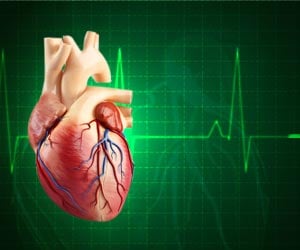This new finding by the researchers of Washington University School of Medicineis is a real bog down for those heart patients who may develop bouts of depression.
This new finding by the researchers of Washington University School of Medicineis is a real bog down for those heart patients who may develop bouts of depression, because death rate is found to be more in them.
Previously it was believed that depressed heart attack patients have a higher risk for sudden death in the months following a heart attack. However, the new study has found that the risk continues for many years."There's a two- to four-fold increase in a person's risk of dying following a heart attack if they also happen to be depressed," said Robert. M. Carney, Ph.D., lead author of the new study and professor of psychiatry at Washington University.
"Previously we thought the impact of depression was strongest for the first three to six months following a heart attack and then gradually dropped off within a couple of years. Instead, we found that the effect lasts for at least five years," he added.
Carney and his colleagues from Duke University Medical Center, Harvard University, Yale University, the National Heart, Lung and Blood Institute (NIH) and the Mayo Clinic, studied more than 750 heart attack patients for five years.
During the study, the researchers found that a little less than half were diagnosed with depression.
Five years after a heart attack, the researchers found that 106 patients died. Out of which 62 had been diagnosed with depression, while 44 had not.
"We found that after adjusting for those risk factors, depression continues to play a statistically significant role," Carney said.
"People typically are depressed for a while, then they'll either get better with treatment or it may subside on its own," Carney said.
"But depression can always recur, and we think that because it is a recurring problem, whatever depression is doing to mortality risk after a heart attack, it continues doing for quite a long time," he added.
The researchers also found that any clinically relevant depression increases the risk of death in heart attack patients.
The risk was high both for patients with major depression, which requires the presence of five or more symptoms, and minor depression, which requires between two and four symptoms for diagnosis.
Major depression was linked to higher risk, but minor depression also was linked to a significant increase in mortality risk.
The study will appear in an upcoming issue of the Journal of Affective Disorders.
Source-ANI
SUN/L
 MEDINDIA
MEDINDIA
 Email
Email










